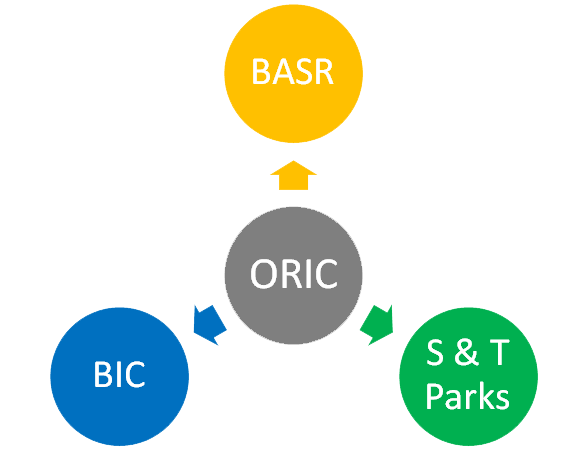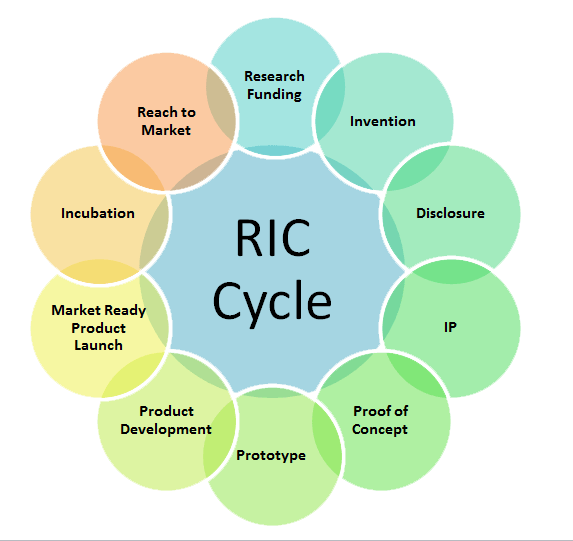As technologies have grown more sophisticated and emerging industries have become more high-tech, universities have become more important players in the processes of invention, innovation, and commercialization.
To be sure, bringing innovations to market has not been the main historical role of university-based researchers. Instead, university researchers quite appropriately concentrate on basic science. But the ultimate aim of scientific research, after all, is to improve the human condition and so aiding the transfer and commercialization of discoveries serves the interests of the inventor and society. “Since the Industrial Revolution, the growth of economies around the world has been driven largely by the pursuit of scientific understanding, the application of engineering solutions, and continual technological innovation” (National Academy of Sciences and National Academy of Engineering 2006). Ideally, university structures should support all aspects of this process, from invention to innovation, as well as commercialization. Hence office of Research, Innovation & Commercialization is responsible for facilitating and supporting the discovery and innovation process on their respective campuses.
As universities become more entrepreneurial and look toward technology transfer into non-traditional fields, there is a need for alternative conceptualizations of technology transfer that are more accurate and realistic than the traditional linear model and that are generalizable to the nuances of the university to which they are applied.
In order to achieve the medium and long term goals of Pakistan’s Economic Policy, it is important for Pakistan’s Higher Education Institutions to recognize that they have to create a new breed of Pakistani educated class which is fit to throw up the future Captains of Business & Industry. It is always the business community, which is the Centre forward of the economy.
In past years we haven’t created nurseries of entrepreneurship where we could grow businessmen of stature; this, in spite of our national achievements of creating medical schools, military academies, engineering universities and a host of other technical and educational laurels. Whatever we did so far, led to creating a class of job seekers.
It needs to be brought into focus that the education sector needs to play its vital part in addressing the need for mass employment. This can only be achieved through large scale industrialization, encouragement of SME enterprises, and a vibrant service sector. Our educational policy needs to cater to the value addition of:
The new breed of business persons would have capability for value addition owing to its qualities of enterprise, analysis, education and market orientation. To achieve these objectives, it is important to channelize university research for:
HEC created, in 2010, the ORICs in HEIs to ensure the impact of research and to sow seeds of entrepreneurship among university graduates, who would desist from entering the job market and, instead, become employers.
The office’s vision is to enable and lead Pakistan’s transformation to a knowledge-based economy dependent upon innovation and entrepreneurship.
“Making Pakistani universities a powerhouse of high growth innovation”
“Transforming Pakistani universities to drive high impact innovation, applied research and entrepreneurship”
Grow our research and economic development efforts and output as to improve our industry competitiveness using university innovations and becoming the driving force behind research and economic development for Pakistan.
The Office of Research Innovation and Commercialization are being established to link research and commercialization from the University with emerging and existing firms across Pakistan and around the world. As an umbrella Work closely with the researchers, chancellors and on campus Incubators & S&T Park, the office also serves as a conduit to local, regional and federal partners to ensure research results aid the growth of Pakistan’s economy. Each ORIC will develop it mechanism for research commercialization and will establish a Business/Technology Incubator to work closely for innovation and entrepreneurship.

ORIC consist upon three important wings:
It is expected that ORIC Management, in each university would work on commercialization of research and helping startups to incubate, grow, create new jobs, products, services, markets, carry out innovation and bring in funding. They will be expected to:
ORIC activities will revolve around the following research cycle to ensure research impact on economy and society

The mechanism for conducive environment and to give strong platform is developed by merging different bodies working in an institute. The director ORIC will be member of all university’s boards and forums to ensure his presence in all meetings for strong coordination.
The board of advance studies and research or office of sponsored research will support wing one research development and operation. While wing 3 will consist upon a Business or Technology Incubators. These incubators will support research commercialization and will provide a platform for university industry research linkage.
Incubators will be established with HEC support in the institutions where ORIC has shown satisfactory performance, based upon the Score Card, in last two years.